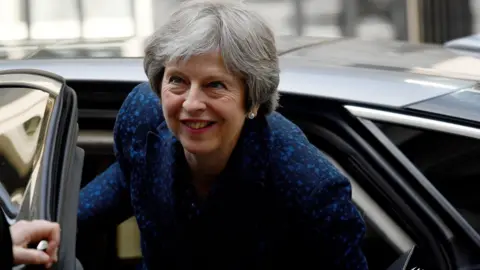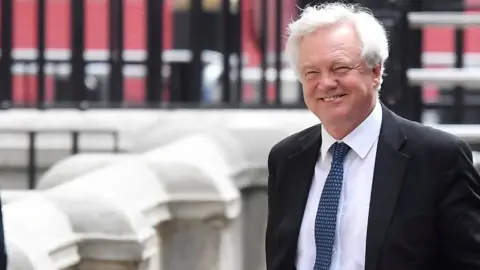Brexit misconceptions - as seen from Brussels
 Reuters
Reuters"Wow," gushed a European journalist to me the other day, "normally we look to Italy for political drama and uncertainty but the UK is making a pretty good show of it."
So dizzying and confused is the news coming out of the UK about how the EU-UK relationship could and should work after Brexit, that EU negotiators say they are forced to stand on the sidelines while the British government talks and argues with itself.
"It just can't work," an EU diplomat told me in exasperation this week. "Theresa May has so many nooses dangling around her neck that one of those nooses is sure to hang her."
He was talking about splits in the prime minister's cabinet, the need to keep Northern Ireland's unionist DUP on board, UK business demands, EU red lines and Brexit negotiating time running out.
"It could be the UK unintentionally crashing out of the EU with no deal simply because time runs out."
Eurocrats also bemoan the fact that the UK government hasn't - in their opinion - been straight with voters, many of whom now have unrealistic expectations about the outcome of Brexit negotiations.
Common misconception #1
- That it is possible for Britain to enjoy frictionless trade with the EU and at the same time be free to strike its own trade deals.
Why isn't that true?
Well, says the EU, the European Single Market was designed to create frictionless trade between its members and close associates, like Norway. To benefit, you have to be one of the gang and respect club rules and restrictions.
Note: Once you are out of the club, a free trade agreement is far from frictionless and the EU is an unapologetically hard-nosed trade negotiator.
Common misconception #2
Fondly referred to here as Brexit's square-peg, round-hole issue
- That if the UK leaves the European single market and a customs partnership with the EU, you can easily avoid the re-introduction of a hard border between the Irish Republic and Northern Ireland.
The government has refused to accept a Northern Ireland-specific arrangement. Brussels says a UK-wide customs deal alone won't do it.
Read more here:
In an effort to bring some clarity to the debate - and to dispel allegations made by some in the UK, including the government's own chief Brexit negotiator, that Brussels is being difficult in negotiations to punish Britain for leaving - EU figures have become very fond of going back to Brexit basics.
Their arguments:
The UK, they say, is free to choose the type of relationship it wants with the EU: staying in or leaving; remaining closely aligned or more at arm's length with the bloc after Brexit.
As long, says Brussels, as the shape of that relationship complies with EU rules as well as UK wishes since it will be an agreement between the two parties.
But, insists Brussels, where the UK has no choice if it wants an agreement with the EU, is when it comes to the Irish border.
Back in December, the UK and EU signed up to ensuring there would be no re-introduction of a hard border on the island of Ireland in order to safeguard the Good Friday accord.
This is the reddest of red lines for the EU. All its normally fractious members are in agreement.
And while the future relationship between the EU and UK remains foggy and undecided, Brussels is insisting on a time-unlimited, rock-solid backstop agreement to ensure that, as a last resort, and whatever else happens in Brexit talks, there will be no new hard border.
 Reuters
ReutersAnd this is where there is further confusion at the moment - so hold on to your seat.
The UK government is talking about a backstop agreement too, but it is referring to what customs arrangement could be put in place for the whole of the UK until a new post-Brexit customs deal is up and operational.
This alone will not cut the mustard with the EU over Ireland.
So - if and when the UK government finally reaches agreement on what it desires as the future EU-UK relationship - the warning from Brussels is this: pay attention to the Irish border; whatever else is agreed it could still bring the whole Brexit deal crashing down.